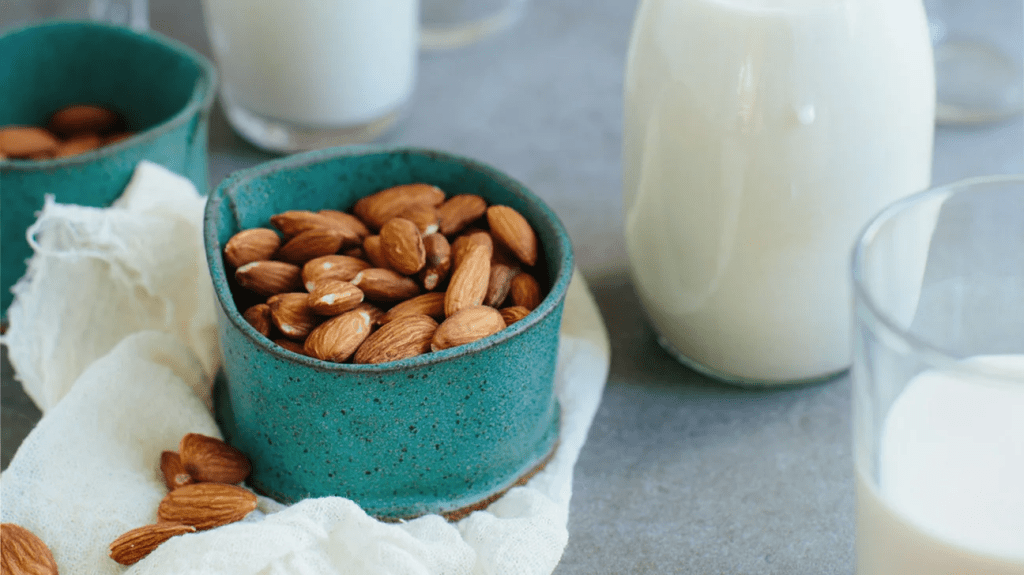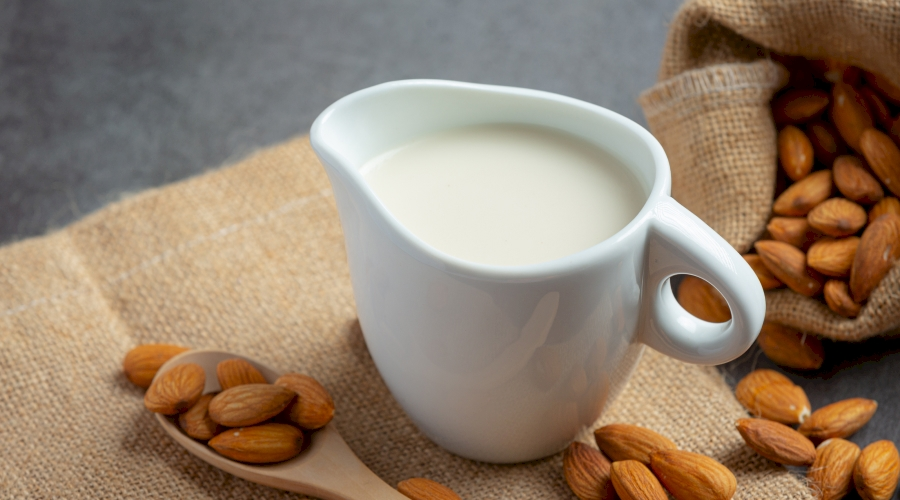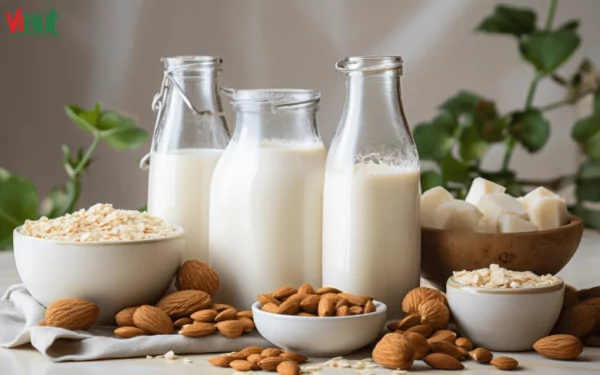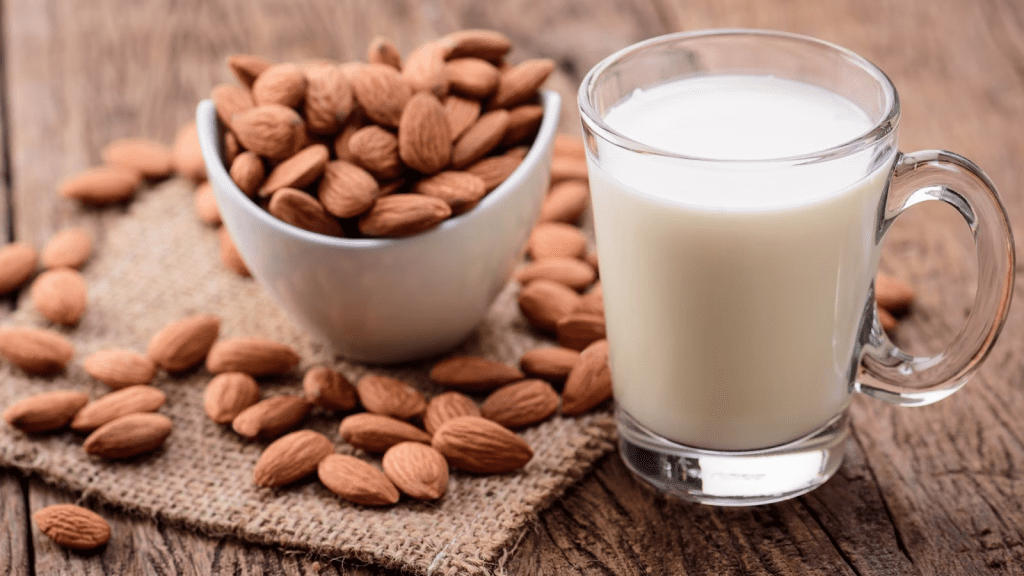Almond milk has taken the world by storm as a trendy alternative to cow’s milk. Whether you’re lactose intolerant, vegan, or simply watching your calorie intake, almond milk often seems like the perfect choice. But recently, alarming claims have surfaced online suggesting that almond milk might be dangerous. So, is there any truth to this, or is it just another case of internet misinformation? Let’s separate the facts from the fiction and uncover what makes almond milk a safe, or potentially concerning, choice.
What Is Almond Milk, and Why Is It So Popular?

Almond milk is a plant-based beverage made by blending almonds with water and straining the mixture to remove solids. Its mild, nutty flavor and creamy texture make it a favorite for coffee, smoothies, baking, and more. Unlike dairy, almond milk is naturally lactose-free and lower in calories, which has cemented its place as a staple in many households.
But almond milk is more than just trendy—it’s packed with health benefits, including being rich in vitamin E and often fortified with calcium and vitamin D. Yet, with all its popularity, some people have started questioning whether it’s as healthy and safe as it seems.
Nutritional Profile of Almond Milk
One of almond milk’s biggest draws is its low-calorie content. Here’s what you can expect from a standard cup of unsweetened almond milk:
- Calories: Around 30-50
- Protein: Approximately 1 gram
- Fat: 2.5-3 grams of healthy fats
- Carbohydrates: 1-2 grams
- Vitamin E: 25-50% of the daily recommended intake
Many commercial brands fortify almond milk with calcium, vitamin D, and sometimes even vitamin B12 to make it more comparable to cow’s milk. However, almond milk naturally lacks the protein content found in dairy, so it might not be the best choice for those looking to boost their protein intake.
Addressing the Claims: Is Almond Milk Dangerous?
1. Nut Allergies
The most obvious risk associated with almond milk is its potential to trigger allergic reactions in people with nut allergies. If you or someone in your household is allergic to tree nuts, almond milk is an absolute no-go. For everyone else, it’s perfectly safe.
2. Additives Like Carrageenan
Some almond milk brands use carrageenan, a thickening agent derived from seaweed, to improve texture. While carrageenan has been controversial due to studies linking it to gastrointestinal inflammation in large amounts, the levels used in almond milk are generally considered safe by regulatory authorities. If you’re concerned, simply choose brands labeled “carrageenan-free.”

3. Nutritional Limitations
Because almond milk is low in protein compared to cow’s milk, relying on it as your primary milk source could leave gaps in your diet. It’s especially important to ensure you’re getting enough protein from other sources if you’re drinking almond milk daily.
Health Benefits of Almond Milk
Almond milk isn’t just a dairy substitute—it has some unique health perks of its own:
- Lactose-Free: Perfect for those who are lactose intolerant or allergic to dairy.
- Low in Calories: A great option for weight management, especially unsweetened varieties.
- Rich in Vitamin E: Acts as a powerful antioxidant to protect your cells and support healthy skin.
- Fortified with Nutrients: Many brands include added calcium and vitamin D to support bone health.
For most people, almond milk offers a healthy, delicious way to enjoy milk without the drawbacks of dairy.

Potential Risks of Drinking Almond Milk
1. Environmental Concerns
One issue that often flies under the radar is the environmental impact of almond farming. Almonds are a water-intensive crop, and with much of the world’s supply grown in drought-prone California, some argue that almond milk isn’t the most sustainable choice.
2. Added Sugars
Flavored and sweetened almond milk varieties can contain added sugars, which contribute extra calories and may not align with a healthy diet. Always opt for unsweetened versions if you’re trying to minimize sugar intake.
3. Low Protein Content
Unlike cow’s milk, which provides 8 grams of protein per cup, almond milk falls short at just 1 gram. If protein is a priority in your diet, almond milk might not be sufficient on its own.
How Almond Milk Compares to Regular Milk
Cow’s Milk
- High in protein (8 grams per cup)
- Naturally contains calcium and vitamin D
- Suitable for those without lactose intolerance or dairy allergies
Almond Milk
- Low in calories and fat
- Lactose-free and vegan-friendly
- Fortified with essential nutrients
For most people, the choice between almond milk and cow’s milk depends on dietary preferences and needs. Almond milk shines in its low-calorie, plant-based profile, while cow’s milk offers a more robust protein content.

Tips for Choosing the Best Almond Milk
If you’re drinking almond milk daily, here’s how to ensure you’re making the healthiest choice:
- Go Unsweetened: Avoid added sugars by choosing unsweetened varieties.
- Check for Fortification: Look for almond milk fortified with calcium, vitamin D, and vitamin B12.
- Skip the Additives: Opt for brands free from carrageenan and other unnecessary thickeners.
- Read the Labels: Avoid almond milk with lengthy ingredient lists full of artificial additives.
Debunking Online Misinformation About Almond Milk
Many of the claims about almond milk’s dangers are overblown or outright false. While it’s true that it doesn’t suit everyone—particularly those with nut allergies or specific dietary needs—it remains a safe, nutritious option for the majority of people. Relying on credible sources like registered dietitians and peer-reviewed studies is crucial when evaluating any food trend.
Conclusion: Should You Keep Drinking Almond Milk?
Almond milk is far from dangerous for most people. It’s a delicious, low-calorie, and lactose-free alternative to regular milk, offering unique benefits like a boost of vitamin E and healthy fats. However, it’s not without its limitations, such as low protein content and potential allergens.
If you’ve been enjoying almond milk daily, there’s no need to panic. Just make sure you’re choosing a high-quality brand that fits your dietary needs and complements a balanced diet. After all, the best milk—whether almond, cow, or another plant-based variety—is the one that works for you.


